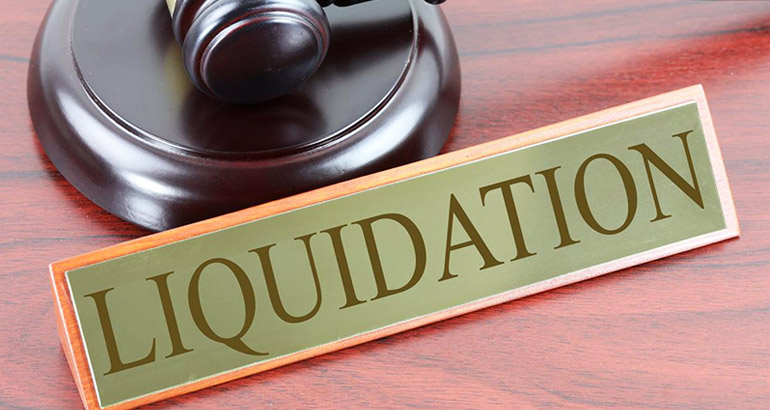7 Easy Facts About Company Liquidation Explained
7 Easy Facts About Company Liquidation Explained
Blog Article
A Biased View of Company Liquidation
Table of ContentsA Biased View of Company LiquidationThe Definitive Guide for Company LiquidationThe Best Strategy To Use For Company LiquidationWhat Does Company Liquidation Do?The Company Liquidation Ideas
A liquidator is specifically appointed to oversee the winding up of a company's events in order for it to be shut down typically when the company is going bankrupt. The liquidator is an impartial 3rd party that manages the sale of business assets in order to repay any kind of arrearages.Their function includes, yet is not restricted to: Unbiased Overseer: A liquidator is entrusted with functioning as an objective third event to manage the entire company liquidation procedure. Create Declaration of Matters: Liquidators have to produce an extensive declaration of affairs document. This record is distributed to creditors, describing the present economic condition of the company at the time of its liquidation.
After the liquidation of a company, its presence is erased from Firms Home and it discontinues to be a legal entity. If supervisors navigated the procedure uncreative, there would certainly be no charges or individual obligation for strong financial obligations anticipated. Now, with a tidy slate, directors can explore brand-new organization opportunities, though specialist assessment is suggested.
Get This Report on Company Liquidation
If more than 90% of all company investors concur, liquidation can take area on brief notice within seven days, the minimum legal notification for financial institutions. Normally, the larger the liquidation and the more assets and capital the organization has, the longer the procedure will take.

We comprehend that no 2 business are the exact same, which is why we will make the effort to learn more about your business so we can recommend the very best training course of activity for you. We just work in your best interests, so you can be totally certain in the solution we supply.
Some Known Facts About Company Liquidation.
In the UK, there is an established process to go to this web-site shutting down or restructuring a minimal business, whether it is solvent or bankrupt. This process is recognized as liquidation and can only be handled by an accredited insolvency expert (IP) according to the Bankruptcy Act 1986. There are four major types of firm liquidation process: Lenders' Voluntary Liquidation (CVL); Required liquidation; Administration; and Participants' Voluntary Liquidation (MVL).

In these scenarios, it is essential that the company discontinues trading; if business remains to trade, the supervisors could be held directly responsible and it could cause the insolvency practitioner reporting wrongful trading, referred to as misfeasance, which may lead to lawsuit. The directors assign a bankruptcy specialist and as soon as this has been agreed and confirmed, there is a meeting with the investors.
The directors are no longer involved in what happens, including the sale of the company's assets. If the directors want any of the possessions, they can inform the IP.
The Ultimate Guide To Company Liquidation
The primary difference is that the firm's financial institutions put on the court for a winding up order which forces the bankrupt business into a liquidation procedure. In many cases, creditors take this activity as a last option because they have not gotten payment via other forms of arrangement. The court selects an insolvency expert, likewise referred to as a main receiver, to conduct the compulsory business liquidation process.
This kind of company liquidation is not volunteer and directors' conduct is reported to the UK's Secretary of State once the liquidation process has actually been completed. As a result, any supervisor that fails to cooperate with the IP or has actually been associated with director transgression, or a deceptive act, might lead to significant consequences (Company Liquidation).
It is utilized as a means to safeguard the firm from any kind of legal action by its creditors. The directors of the company agree to make regular repayments to settle their financial redirected here obligations over a duration of time.
The Ultimate Guide To Company Liquidation
This offers the company with time to develop a strategy moving forward to save the business and avoid liquidation. However, at this factor, supervisors hand article control of the firm over to the assigned manager. If a business is solvent however the directors and investors intend to close business, a Participants Voluntary Liquidation is the right option.
The firm liquidation procedure is managed by a liquidator appointed by the directors and investors of the business and they must authorize a statement that there are no creditors staying. The liquidation process for an MVL is comparable to that of a CVL in that properties are know but the earnings are distributed to the supervisors and the shareholders of the firm after the liquidator's fees have actually been paid.
Report this page